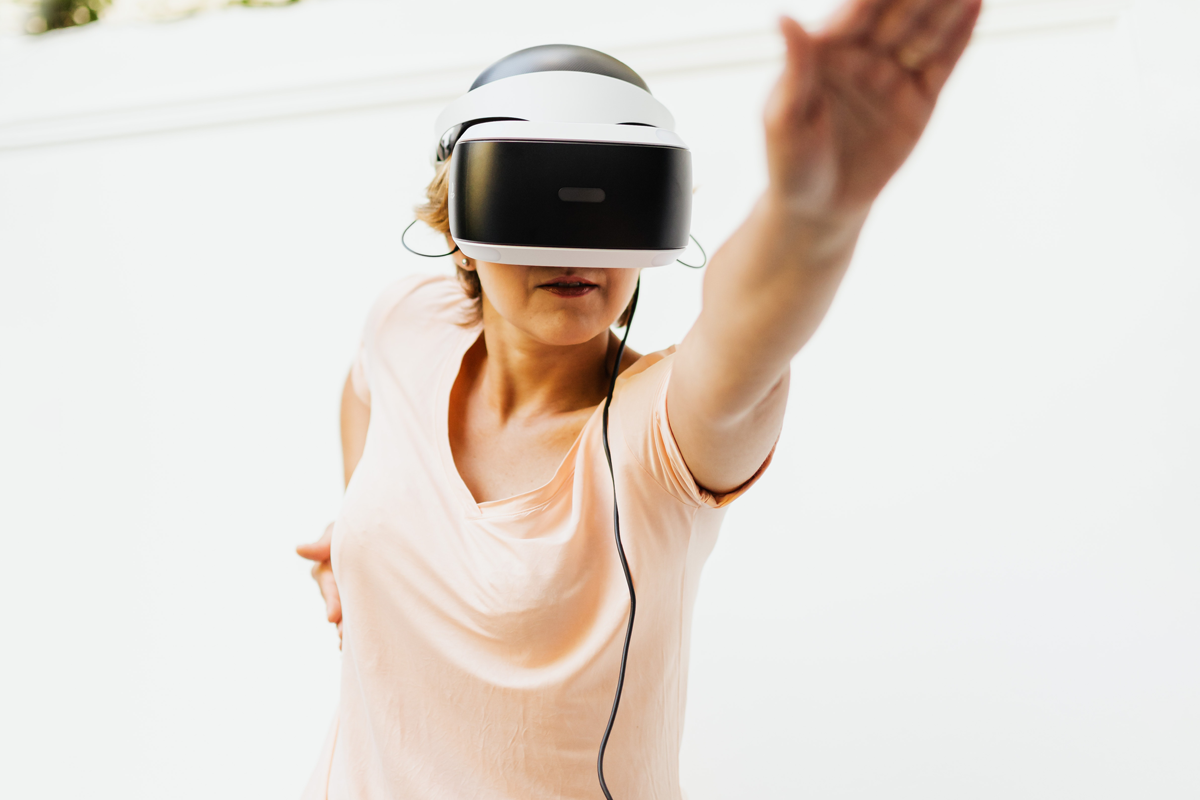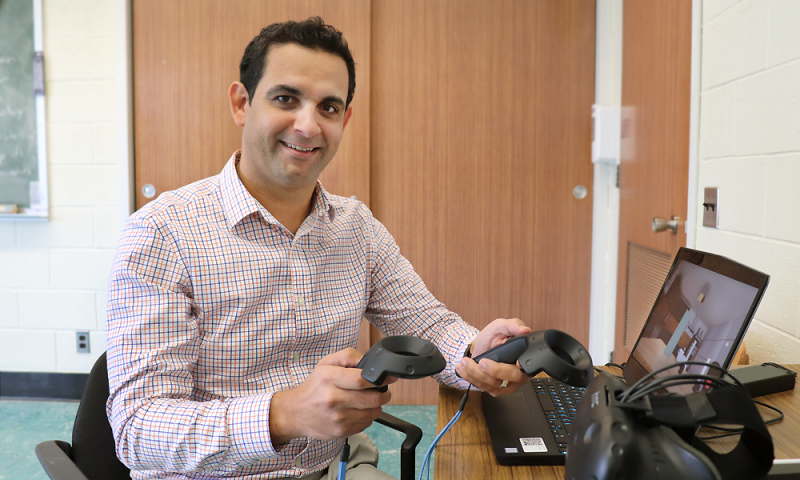
A UM PILOT STUDY WILL EXPLORE VIRTUAL-REALITY YOGA TRAINING FOR STROKE SURVIVORS.
New Gerry McDole Professor to test virtual-reality yoga for stroke rehabilitation
Stroke survivors in rural Manitoba will wear virtual reality (VR) headsets for yoga sessions and memory-training exercises in an innovative UM pilot study.
Dr. Amine Choukou has been awarded the Gerry McDole Professorship in Improved Healthcare Delivery to Rural, Remote and Underserved Populations of Manitoba.
The professorship, funded by AstraZeneca Canada, will enable Choukou to develop and test a VR-based rehabilitation program to help stroke survivors rebuild their physical and cognitive abilities.
“A person in a rural or remote community who is recovering after a stroke typically has to travel for rehabilitation appointments,” said Choukou, assistant professor of occupational therapy at the College of Rehabilitation Sciences in the Rady Faculty of Health Sciences.
“We believe that rural stroke survivors will benefit from guided rehabilitation sessions in a virtual-reality environment. They can do this in their own homes, with a VR headset and laptop computer that we will supply. Community volunteers will help the stroke survivors with the technology at each session. The yoga movements will be in a sitting or standing position.”
The Gerry McDole Professorship, valued at $50,000 per year, is presented to a new faculty member in the Rady Faculty for research in health service delivery or health policy development and offered for a three-year term.
It is supported through a generous endowment created by AstraZeneca Canada Inc. in honour of Gerry McDole [B.Sc./60] on his retirement as president of the company in 2003. The professorship continues to pay tribute to McDole, a former Manitoban who understood the unique challenges of delivering health care to rural and remote populations.
“I’m pleased to congratulate Dr. Choukou,” said Dr. Neil Maresky, vice president – scientific affairs of AstraZeneca Canada. “The road of recovery and rehabilitation following a stroke can be incredibly challenging for patients, particularly those who don’t have ready access to support services. Dr. Choukou’s research into VR-based rehabilitation has great potential to support stroke patients and a health-care system that is stretched.”
Dr. Reg Urbanowski, dean of the College of Rehabilitation Sciences, also congratulated the professor. “This well-deserved honour recognizes Dr. Choukou’s leading-edge use of technology to help people maintain their independence in their own homes and reduce the burden on family caregivers,” Urbanowski said.

DR. AMINE CHOUKOU
Choukou’s overall research focus is on digital technologies to help people with cognitive challenges or rehabilitation needs connect with off-site caregivers. These technologies range from robots that are remotely controlled by caregivers to sensors built into an apartment to detect when a resident needs help.
The professor says other researchers have tested VR games for stroke recovery, but he believes his is the first study to explore post-stroke VR yoga training. In a lab at UM, Choukou’s team will create the 3D virtual environment that participants will experience.
The 12-week pilot study, expected to start in the fall of 2021, is a randomized controlled trial. Choukou’s team will recruit 60 participants who are discharged to their homes after having a stroke. Twenty of these will be rural or First Nation residents who will make up the VR group. The remaining 40 participants will be assigned to a control group and a comparison group in Winnipeg.
March of Dimes Canada, a not-for-profit organization that provides services to stroke survivors and caregivers through its After Stroke program, will help facilitate the study.
Three times per week, participants in the rural/remote group will be guided through a one-hour session consisting of 20 minutes of VR-based yoga for upper limb recovery, 20 minutes of yoga led via Skype for the lower limbs and balance, and 20 minutes of VR-based memory training.
“We expect to see improvement in participants’ arm and hand function, balance and mobility, and cognitive performance,” Choukou said. “We also predict reduced frailty and fewer falls.”






